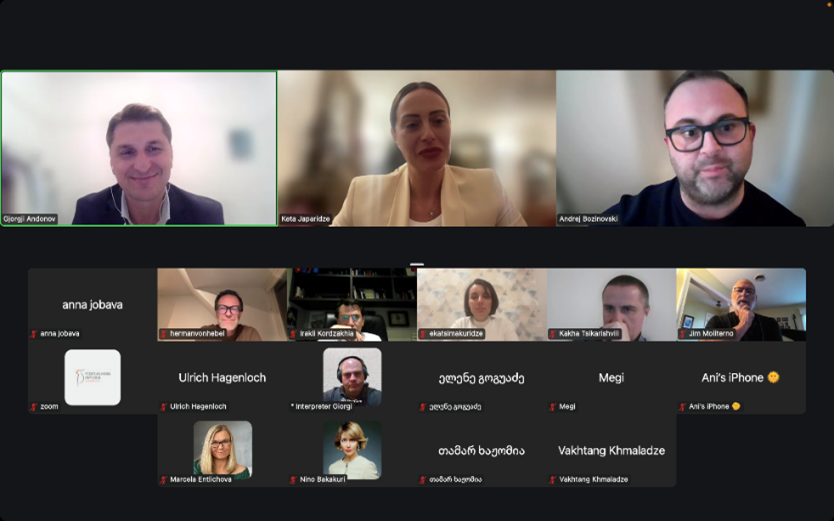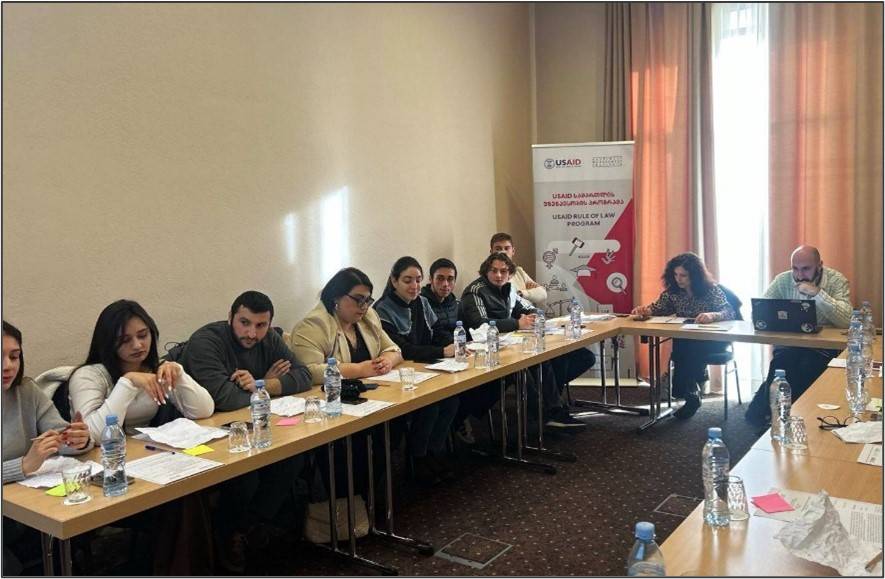Group of Independent Lawyers and NGO Democracy Index – Georgia, with USAID Rule of Law Program support, organized an online discussion on judicial integrity check systems and their alternatives.
Twenty-three participants, including lawyers, former judges, and NGO representatives, engaged with experts from the Netherlands, Croatia, and North Macedonia to discuss this mechanism recommended by the European Union to address the problems of corporatism and political influence in the Georgian court system.
Gjiorgjy Andonov, a judge, discussed the challenges faced by the judiciary in Northern Macedonia. Guram Imnadze, a Georgian expert and Director of Social Justice Center, provided an overview of the developments in the Georgian court system since 2012. Andrej Bozhinovski, Legal Expert and Coordinator of the Guidelines on Judicial Vetting at the CEELI Institute, talked about types of vetting and alternative judicial accountability mechanisms. Herman von Hebel, Chairperson of the Pre-Vetting Commission in Moldova, shared his experience implementing financial and ethical integrity checks in Moldova.
The experts found vetting to be a useful tool that can be used to address fundamental problems in judiciary. They noted, however, that this mechanism should be applied with caution. The experts emphasized that vetting is an extraordinary, one-time measure. It should not be transformed into an instrument which will be repeatedly used by different governments to replace judges with their cronies. The experts also suggested that it is wiser to apply the integrity checks to the key administrative bodies which will later ‘cleanse’ the system through traditional disciplinary mechanisms, instead of undertaking the vetting of an entire judicial corps.
In Moldova, the Pre-vetting Commission assesses only the ethical and financial integrity of judges and considers the candidates’ judgments only in the exceptional cases. The Commission gathers information through public sources, CSOs, journalists, private banks, and the public at large. It also makes sure the vetting process complies with the requirements of the European Convention of Human Rights. The process is fully transparent and subject to appeal.
The event ended with a Q&A session in which participants asked the experts questions about the practical aspects of integrity check systems.

